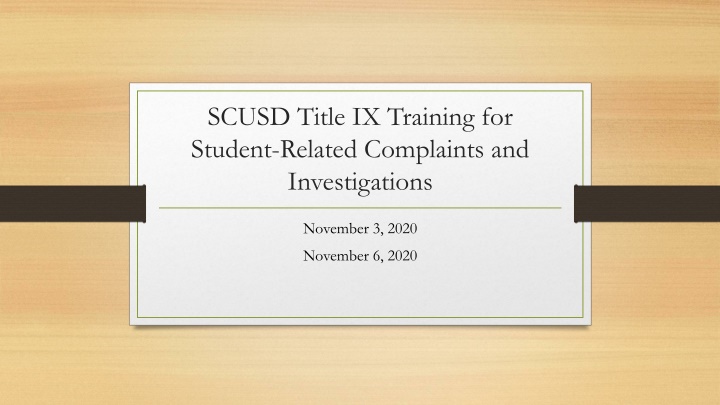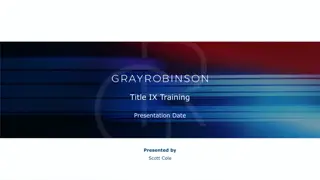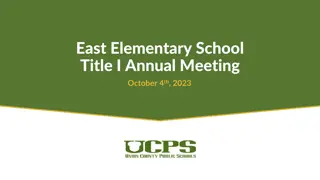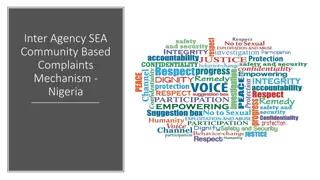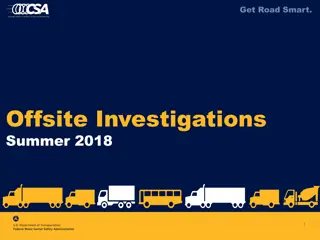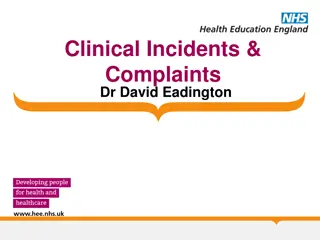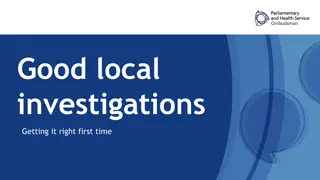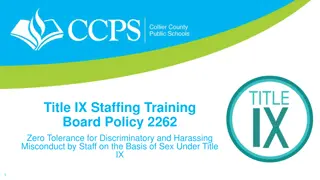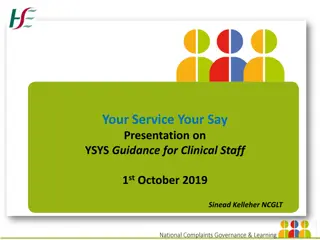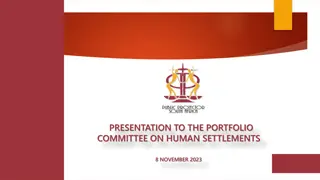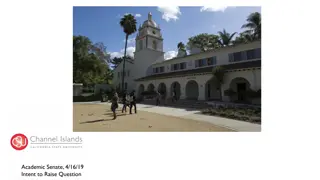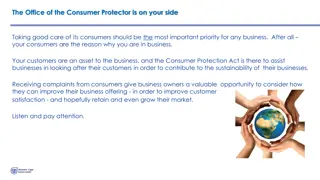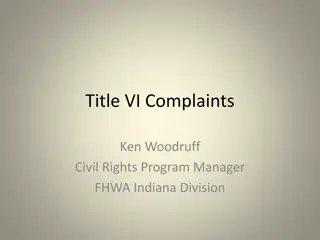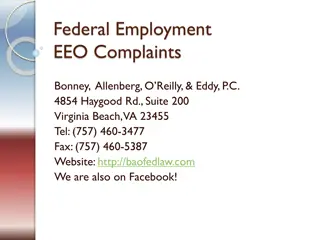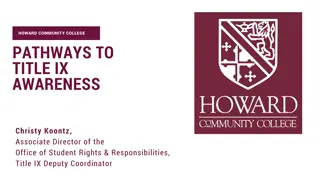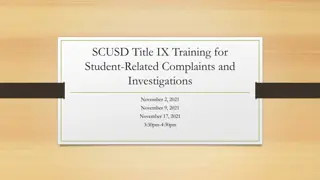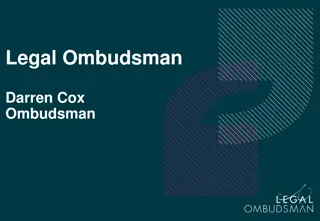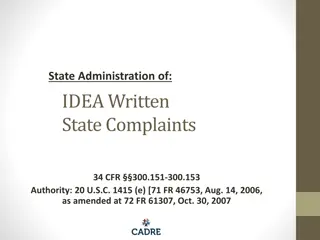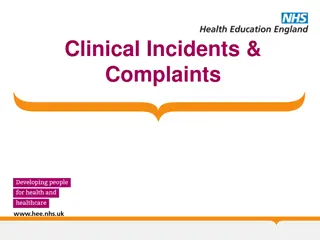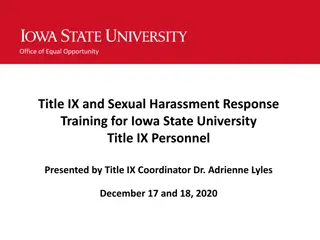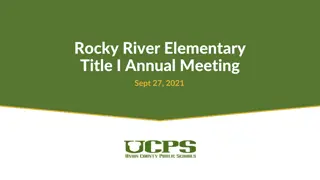SCUSD Title IX Training for Student-Related Complaints and Investigations
This training program, held on November 3 and 6, 2020, focuses on Title IX regulations related to student complaints and investigations within SCUSD. Participants will gain a deeper understanding of the processes involved in handling such cases effectively, ensuring a safe and compliant educational environment. The training aims to equip staff with the necessary knowledge and skills to address Title IX issues promptly and appropriately. By enhancing awareness and proficiency in this area, the training ultimately contributes to fostering a supportive and secure school community.
Download Presentation

Please find below an Image/Link to download the presentation.
The content on the website is provided AS IS for your information and personal use only. It may not be sold, licensed, or shared on other websites without obtaining consent from the author.If you encounter any issues during the download, it is possible that the publisher has removed the file from their server.
You are allowed to download the files provided on this website for personal or commercial use, subject to the condition that they are used lawfully. All files are the property of their respective owners.
The content on the website is provided AS IS for your information and personal use only. It may not be sold, licensed, or shared on other websites without obtaining consent from the author.
E N D
Presentation Transcript
SCUSD Title IX Training for Student-Related Complaints and Investigations November 3, 2020 November 6, 2020
Title IX Contacts Student Hearing and Placement Department Stephan Brown (Title IX Coordinator) Jessica Wharton (Lead Investigator) Legal Services Department Raoul Bozio (In-House Counsel) Alexa Hankard (Legal Analyst I)
What is Title IX? Title IX of the Education Amendments Act of 1972 No person in the United States shall, on the basis of sex, be excluded from participation in, be denied the benefits of, or be subjected to discrimination under any education program or activity receiving Federal financial assistance. District policies cover nondiscrimination/harassment and sexual harassment (BP and AR 5145.3 and 5145.7)
New Title IX Regulations 2011 vs. 2020 Reasonably prompt timeframe Process now needs to be completed in a reasonably prompt timeframe Procedural requirements for due process Increased due process for respondent, including multiple opportunities to respond to allegations and finding Either the complainant or respondent can appeal the District s decision, but only the respondent can appeal the District s sanction
New Title IX Regulations 2011 vs. 2020 The definition of sexual harassment Unwelcome conduct determined by a reasonable person to be so severe, pervasive, and objectively offensive that it effectively denies a person equal access to the District s education program or activity Also includes sexual assault, dating violence, domestic violence, and stalking Actual knowledge for notice When any employee has notice of sexual harassment or allegations of sexual harassment Deliberate indifference standard
New Title IX Regulations 2011 vs. 2020 Sexual Harassment Definition Continued Sexual assault Dating violence Domestic violence Stalking
Examples of Sexual Harassment Unwelcome propositions Derogatory comments Sexual jokes or gestures Spreading sexual rumors Grabbing or touching Comments on an employee or student s body Sexual acts without consent or based on coercion
Scenario A group of 7thgraders decide they want to play slap ass Friday because they don t want to get in trouble, they all get matching wristbands to identify who is playing. They agree that they will only play the game with other students wearing the wristband. On Friday during lunch, ten 7thgraders (boys and girls) are running around the playground slapping each other s bottoms, laughing and having fun. They do not slap the bottoms of anyone not wearing a wristband.
Response to Scenario Is this a Title IX violation? What do you do?
Key People and Terms Complainant Respondent Coordinator Investigator Decision-maker Appeals Officer Informal Resolution Officer Advisor
Title IX Specialist Responsibilities Know the Process/ Explain Process Formal Written Complaint vs. Report Keep Excellent Records Preliminary Investigation (Keep Notes) Likely Assist Actual Investigation Offer Supportive Measures
Informal Resolution Informal resolution is a process that does not involve a full investigation and adjudication and can only be offered when: A formal complaint is filed; The District has sent a notice about the allegations and the informal resolution process; A written informed that a determination has not yet been made; Both parties have provided voluntary, written consent to the process (and have been they can withdraw from the process as any time). Informal resolution cannot be used for allegations where an employee is alleged to have sexually harassed a student.
Title IX Jurisdiction 2020 Rule Allegations of sexual harassment fall under Title IX when: The conduct occurs against a person in the United States; The conduct occurs in an education program or activity over which the District exercised substantial control over both the respondent and the context in which the sexual harassment occurs; and The complainant was participating/attempting to participate in the educational program or activity at the time the complaint was filed.
Complaint Formal Complaint v. Informal Report Formal Complaint: A document filed by a complainant (i.e., the student or the student s parent/guardian) or signed by the Title IX Coordinator alleging sexual harassment against a respondent and requesting that the District investigate the allegation. Informal Report: If no formal complaint is filed by the complainant, the Title IX Coordinator should assess whether to independently initiate a complaint based on a threat to safety.
Supportive Measures Supportive measures should be offered to the complainant or respondent before and after the filing of a formal complaint or where no formal complaint has been followed. Escort to class Change to class schedule Refer to counseling Safety plan No Contact Order Emergency Removal Use trauma-informed approach Non punitive
Investigation Send notice of investigation letters to both the complainant and the respondent. Investigation process includes interviewing witnesses and reviewing evidence. Investigation report should be prepared by the investigator and must summarize relevant evidence. Parties must be offered the opportunity to provide a written response to the investigation report.
Decision-Maker The decision-maker must allow parties the opportunity to submit written relevant questions for the other party/witnesses and ask those questions they deem relevant. The decision-maker must provide an explanation as to why a question was deemed irrelevant. The decision-maker must prepare the written determination.
Appeal Parties may appeal the written determination on the following bases: Procedural irregularity New evidence that was not reasonably available earlier Title IX personnel had a conflict of interest or bias
Forthcoming Title IX Specialist Training Spring 2021 March 23 at 2pm March 24 at 2pm
